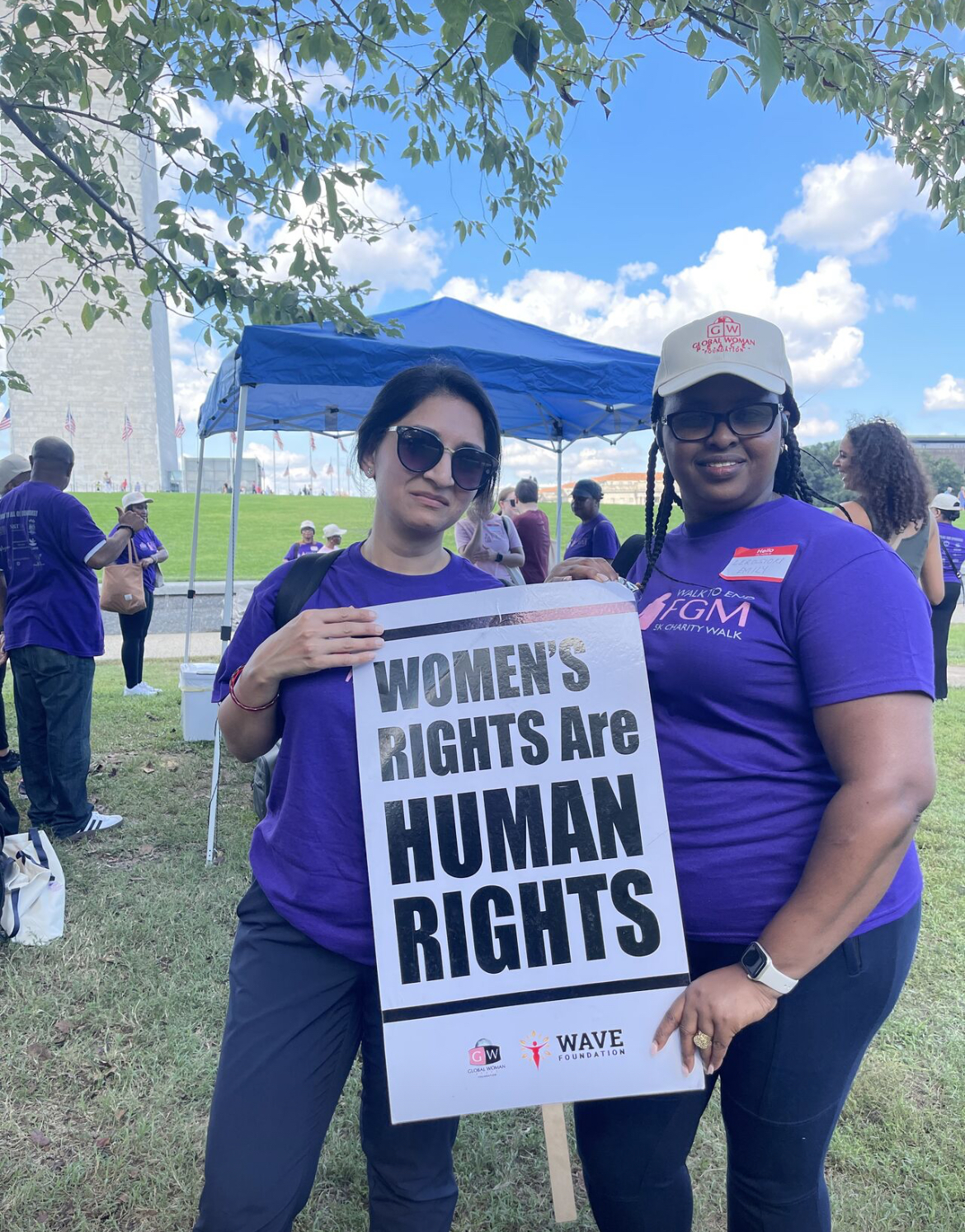This year, I had the wonderful opportunity to participate in the Annual Walk to End Female Genital Mutilation (FGM), held in Washington, D.C. on September 28th, 2024. The sense of community prior to the walk was palpable when I arrived at the amphitheater nestled across from the Washington Monument. I got a chance to meet many activists, survivors, advocates, and others that I work with in a virtual space, but haven’t met in person. Some participants traveled all the way from Seattle and California to walk with other community members, while others joined from the DC metro area and surrounding states.
In it’s eleventh year, the Walk to End FGM welcomed participants from all walks of life. Men, women, the elderly, and even children joined their parents in uniting against a practice that affects millions of women and girls worldwide. The event piqued people’s curiosity, and many passersby stopped to ask questions about FGM/C and took interest in learning more about the prevalence of the practice in the U.S. and other parts of the world.
Angela Peabody, Executive Director and cofounder of the Global Women Peace Foundation, welcomed all the participants to the event. It kicked off with the Global Woman Peace Awards ceremony, which honored activists and survivors who have made impactful contributions toward ending FGM/C. A beautiful musical performance, recognitions, and speeches followed the ceremony.
I was honored to accept the Lisa C. Bruch Woman of the Year award on behalf of Amy Hill, who was being recognized for her service to survivors of FGM/C through the Voices to End FGM/C storytelling project, which she co-founded with Sahiyo’s Executive Director, Mariya Taher. I had the opportunity to work with Amy at a recent workshop in Washington D.C. in June 2024, so it was my great pleasure to receive the award and share remarks on her behalf since Amy was unable to attend the ceremony.
“What started as a single digital storytelling workshop that we led together has become Voices to End FGM/C. To date, Voices has supported more than 75 survivors and advocates in connecting through the power of story and combining words and images into short videos that spotlight deeply personal and uniquely individual moments from their lives,” Amy said.
The ceremony continued, with awards given to other activists, survivors, educators and ambassadors who discussed their commitment to advocate against FGM/C. It was especially heartwarming when some of the survivors and advocates proudly brought their young children with them on stage to accept the awards. I loved listening to these stories and seeing the pride they had in their work and achievements as FGM/C advocates.
After the awards ceremony, we walked around the Washington Monument, chanting “No More FGM,” getting bystanders to join in on our calls for an end to this practice. The walk may have ended, but our work is far from over. I hope we can continue to mobilize communities throughout the U.S. and the international arena to highlight the urgency of ending FGM/C and push for policies that protect the rights and well-being of all women and girls.

